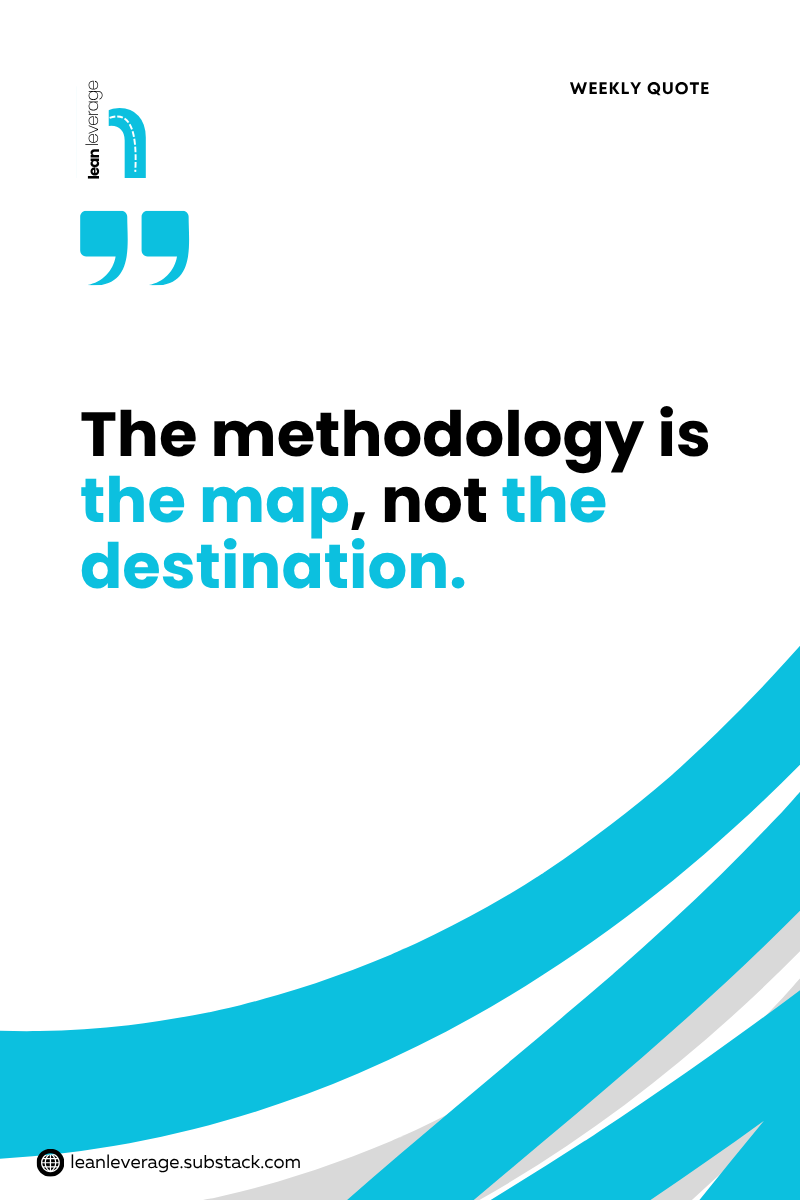The Guide to Being an Annoying Improvement Specialist
...(And how to stop before someone flings your A3 at your head)
Over the past few weeks, I’ve been reading up on how Lean implementation supports change management.
Books, journals, articles. A sprinkle of blog posts written by consultants with six frameworks. I consumed it all.
And like most improvement folks, I was looking for that golden list, the critical success factors that make or break a Lean journey.
Lo and behold, the usual suspects showed up:
Organisational culture and readiness
Leadership commitment
Communication
Resource availability
Strategic approach
Organisational maturity
Before you come for my neck; yes, I know this list isn’t exhaustive. There are many other factors that drive sustainable transformation.
But here’s what hit me:
Most of these things are out of your control as a Lean Specialist.
You can’t force culture.
You can’t manufacture executive commitment.
You certainly can’t summon resources from thin air (except maybe post-its. We always have those).
Of all the levers we pull, we only really have control over these:
- Communication
- Strategic approach
That’s it.
So when we try to influence the rest like we own it, we often come off a certain way which is not really nice.
Truth is:
You’re probably annoying, but people are too polite to tell you.
Your stakeholders won’t write it in your feedback survey.
But behind closed doors, some poor manager is muttering: “Why is this person like this?”
And the worst part? You're doing it for the right reasons.
You care. You’re passionate. This is your bag.
But still, the approach is annoying.
So in the spirit of continuous improvement and “preventing bombastic side eye”, here are 4 behaviours that turn you from helpful to annoying and how to stop.
1. You’ve Started Idolising the Methodology
The methodology is the map, not the destination.
The goal is not to use Lean Methodology. The goal is to improve things (the product, service) whilst being guided by the methodology.
But you?
You're stuck on whether the Fishbone Diagram was drawn “correctly” or if someone skipped the fourth “Why” in a 5 Whys session. You keep correcting templates like you're being paid by Toyota.
Nobody cares.
They’re just too professional to say it.
Break things down.
Make it simple.
Stop using projects to flex your expertise. Save that energy for your CPD log.
I once joined a project where they asked me to give “suggestions and recommendations” straight after the Gemba.
Was it Lean-approved? Not really.
Did I do it anyway? Yes.
Why? Because suggestions spark conversations, and conversations reveal root causes. Sometimes you’ve got to dance to the music before you can remix the track.
2. You’re Crying More Than the Bereaved
We get it, you’re excited.
You’ve got a plan, sticky notes, and a dream.
But this is not your service.
This is not the time to bring Olympic-level urgency to a team that’s just trying to get through their backlog.
A wise person once told me, “Meet them where they are”.
Start small.
Build trust.
Let them breathe.
You're not here to “change the world.” You’re here to guide them to improve their world. If you keep rushing, everything will feel forced, and the only transformation you’ll lead is from interest to irritation.
3. You’re Speaking Too Much “Lean”
During a leadership training, someone was asked: “What ruins your day at work?”
Their answer?
“Acronyms and complex lingo.”
The ones people throw around like confetti with no explanation.
We have lots of them in improvement: Hoshin Kanri, Heijunka, SMED, 5S, OEE, Jidoka, DMAIC.
Forget all that. Your audience only wants one thing: understanding.
Here’s the tea:
If they don’t understand you, they won’t work with you.
And if you lose your audience before the start of the project, you lose the chance and the change.
Talk like a human being. Explain stuff. Translate Lean to normal language.
Nobody wants a sensei. They want a partner.
4. You Don’t Know When to Leave
There’s a special kind of pain that comes from overstaying your welcome in a team that was once excited about improvement, and now just wishes you would go away.
At first, they were keen.
Workshops were lively.
People showed up on time.
They even brought biscuits.
Then the energy fades.
Workshops are “rescheduled.”
Emails go quiet.
Someone sighs audibly when you walk into the room.
Don’t take it personally, they’re just not ready right now.
And guess what? That’s not your fault.
It’s okay to ask the team:
“How do you want to be supported now? What would you like for me to do now?”
Organisational readiness is not within your control.
Some teams need time to stabilise before they can sprint.
If you push too hard, you don’t drive change, you smother it.
So pack up your stuff and find a ready team, and leave them wanting more.
Otherwise, you’re just another form of waste:
Non-utilised talent, overproduction and motion waste, moving from meeting to meeting with no real traction.
Wrapping Up
If you're feeling like you're doing the most but making the least impact, this is your reminder:
You can’t control everything.
You don’t need to be the hero.
Focus on what you can influence.
When you do that, people start seeing what you see through your Lean Lens.
And maybe, just maybe, they'll start believing in it too.
Until then,
Be less annoying. Improve smarter.
Tomiwa Femi-Philips
Lean Process Improvement Enthusiast





This was fascinating! I'm an editor, and I think a lot of those applies to the editing process as well. I especially liked the prodding to be sensitive to the balance between making suggestions, but then becoming overbearing or overstaying your welcome. Since I communicate a lot via email with clients, it can be challenging to you get the communication that helps me understand where I am in that balance. Thanks for helping us think about these matters.
I don't know how all your write ups can be forwarded to a certain company's management as part of their weekly meetings.
This is a beautiful summary of a vital topic